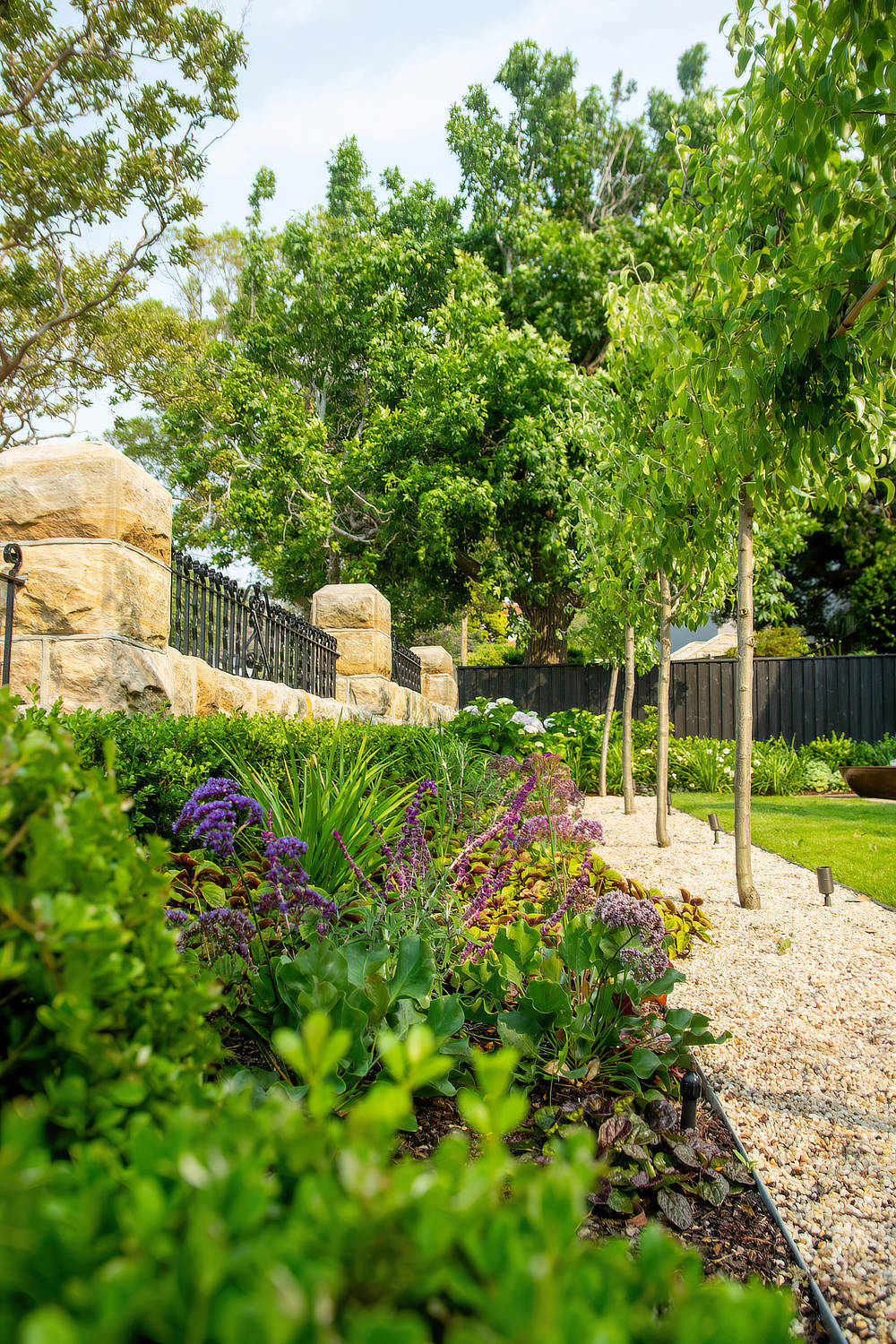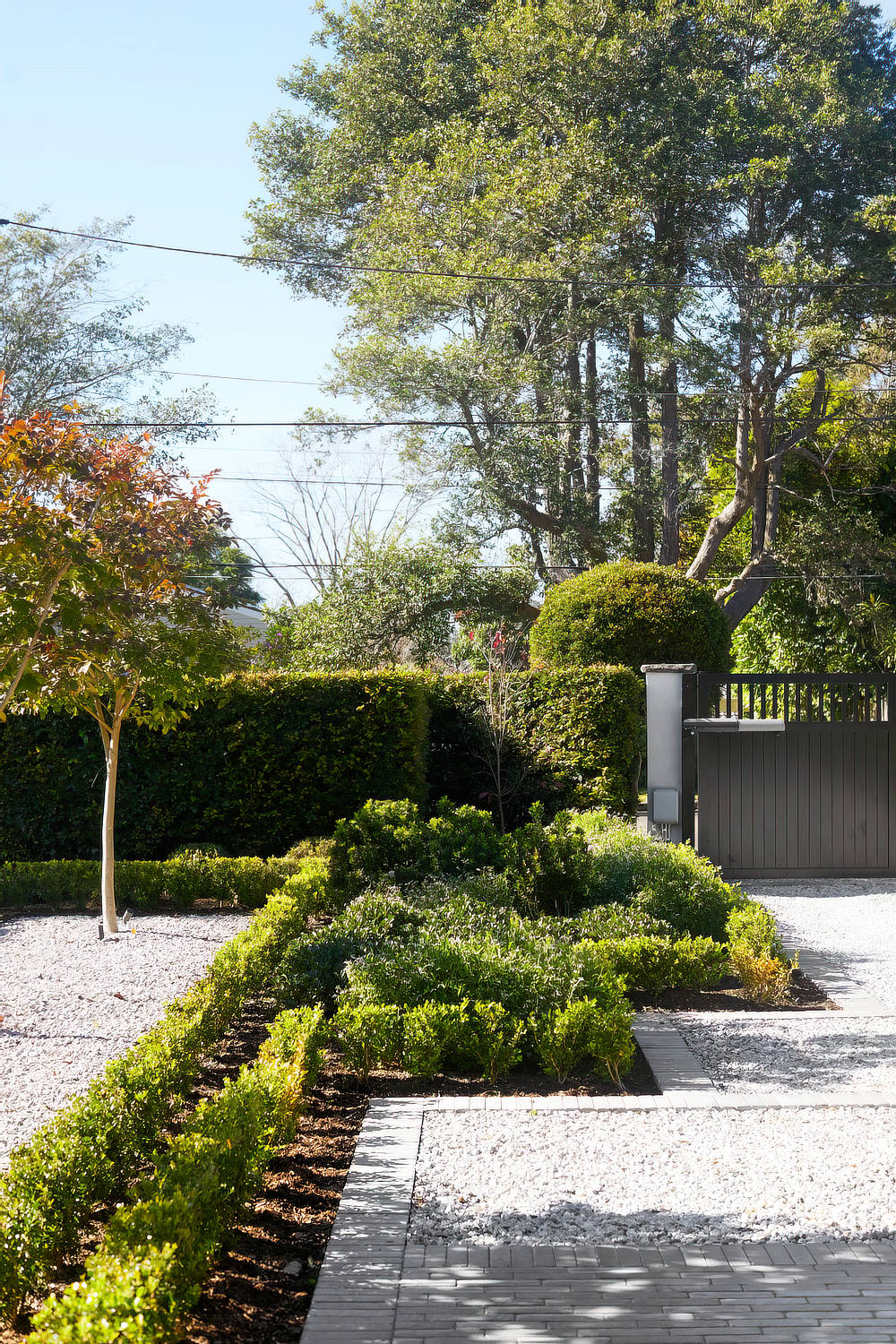Gravel can be a very useful finish in the garden and it can be applied to various styles of garden as well, making it a versatile cost effective finish.
Comparing the cost of a paved, concreted or bitumen driveway or path to one of gravel is like comparing chalk and cheese. Gravel is a simple finish that after excavation is simply spread out and you’re done, making it very inexpensive. Whereas the other mentioned finishes require much more skill, labour and materials to get right, all of which bump up the price.
A draw back to using gravel for your pathways and driveways is its ability to be moved around, car tyres can push it out from the intended location and spread it across the street, leaving you with ruts and low spots. To combat this, I always install a reinforcing cell under my gravel – this prevents excessive erosion and takes away the feeling of walking on soft sand.
Reinforcing cell can be found at your local hardware store or purchased online for larger areas and will increase your cost of installation by approximately $50 a square meter – well worth the investment in the long term.
When using gravel for a drive I like to use a more angular gravel as the sharp sides knit together making the surface more stable whereas on my pathways I like a rounded river pebble as it is much easier to walk on, especially if you go for a barefoot walk around the garden. The size of your gravel should also be considered. I find 8-10mm works best for pathways and for driveways too however you can go a little bigger, up to 30mm for driveways as this size increase lowers the cost however the combination of rounded pebble in a 30mm size will increase the amount it gets pushed around by your vehicle.
One benefit of using gravel in the garden is its ability to allow for rainfall to penetrate through to the ground naturally below – this is excellent for supporting plant growth, and slowing water into the stormwater system, it also helps to lessen the effects of a hydrophobic soil as the ground is much less likely to completely dry out.
Gravel also makes a great mulch, suppressing weeds and insulating the soil as well as slowing the water into the ground. It can also give you a contemporary look to your pots and garden beds but be aware unlike natural organic mulches it won’t break down to add nutrients to the soil or improve its structure. This may mean you will have to do some additional fertilising and even pull back the gravel to apply compost before shifting it back.
Before going out and spreading gravel over your driveway and pathways find out where it comes from, the last thing you want is to be responsible for degrading natural rivers and waterways. When ordering just ask the supplier if the gravel you are ordering comes from a responsibly managed source rather than the natural environment.


